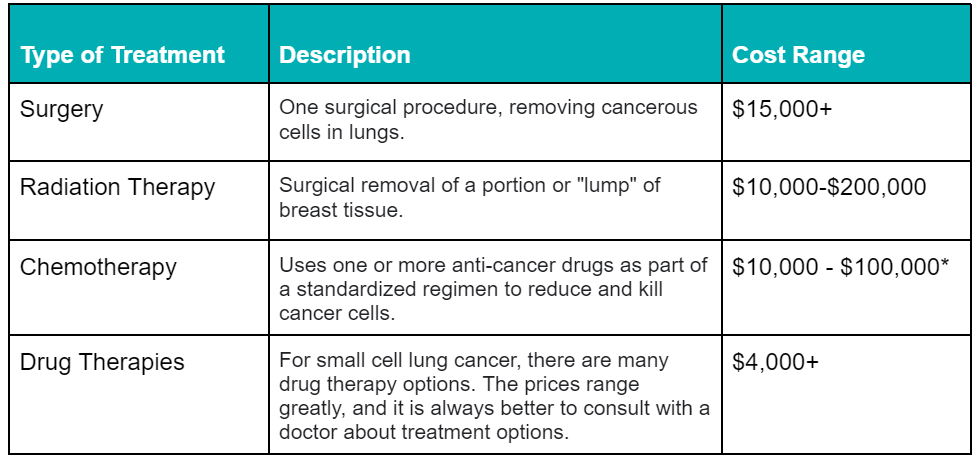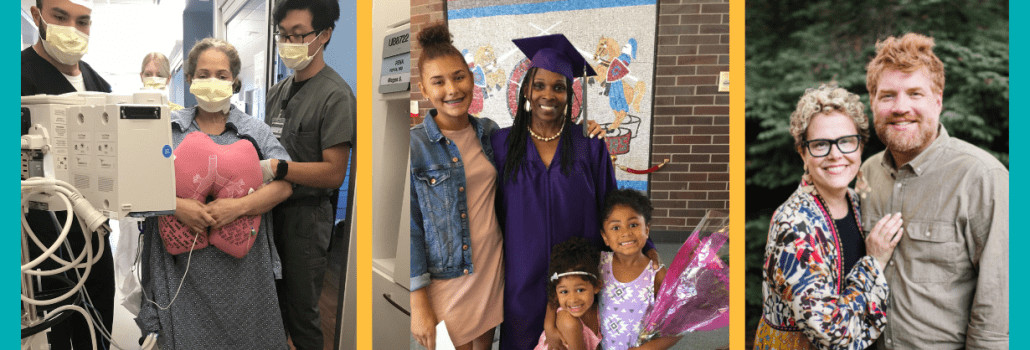
MobilityWorks
Accessibility for all: Helping people connect with who and what matters most
Searching...
No results found. Please try modifying your search.
Find financial assistance for lung cancer through medical fundraising provided by our nonprofit. Launch your campaign today.
The costs associated with lung cancer can be daunting. Explore what you need to know about lung cancer treatment costs and how medical fundraising for lung cancer with Help Hope Live can help provide financial assistance for costs associated with lung cancer.
For patients who are supported by a reliable insurance plan, some lung cancer treatment costs may be covered. Many plans may not provide comprehensive financial assistance for lung cancer patients, particularly if treatment includes specific drugs or treatments with high out-of-pocket price tags. Further, even if your insurance does cover your costs, finding lung cancer copay assistance can also be a valid concern.
Before insurance, the costs of treating lung cancer will likely involve one or more of these options:

Other treatment options, such as hematopoietic stem cell transplantation (HSCT) may come with additional out-of-pocket expenses. This type of therapy has evidence suggesting that it may be effective treating several types of orthopedic conditions. Its use outside of these treatment types, however, are largely unconfirmed and still in clinical trials. However, it’s best for patients to talk to an insurance provider to determine exactly what will be covered.
Lung cancer medical expenses associated with procedures, rehabilitation and therapy, and long-term health care will vary depending on the situation. Regardless of the specifics, the expenses can add up quickly for patients and their families.
Fundraising can help provide financial support for lung cancer. Through community-based fundraising, our nonprofit organization is dedicated to helping you raise funds for the medical expenses associated with surgery or ongoing support for lung cancer.
The fundraising process with our nonprofit starts with a few simple steps:
Help Hope Live differs from GoFundMe by:
We are a nonprofit organization with more than 4 decades of fundraising experience and a 4-star Charity Navigator rating.
Yes! Thousands of patients have found financial assistance through crowdfunding for medical bills.
Read inspiring success stories from individuals who turned to Help Hope Live for support.
Here are a few fundraising success stories from the Help Hope Live community:

At 28, PJ Kent was diagnosed with acute lymphocytic leukemia with little warning. With one-on-one fundraising assistance from our team, his family and community rallied to fundraise for urgent medical needs ranging from specialized care to inpatient stays and hospitalizations.
Rachelle Ledbetter waited for years for the gift of new life to fight back against debilitating lung disease. In 2021, she received a double-lung transplant and started a new chapter of her life. Her new beginning was fueled by her community of support through a Help Hope Live fundraising campaign. Today, Rachelle is an Ambassador for Help Hope Live.
If you choose to fundraise with our nonprofit, here’s how the process will look:
1. APPLY for assistance
2. YOU’LL BE PAIRED with a Client Services Coordinator
3. YOUR COORDINATOR will provide you with one-on-one fundraising help, including personalized fundraising materials and guidance on how to rally your community, share your story on social media, reach out to the press, plan in-person or virtual fundraising events, and more.
Need Other Financial Help Options?
For alternatives to fundraising, you can find information on a variety of cancer financial assistance options. Please view our Catastrophic Illness Resource Directory for insight into sources of direct financial aid, support groups, and other resources for cancer patients and their families.